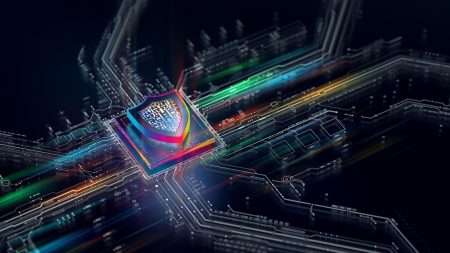Pure Storage announced the release of its next-generation FlashArray//X and //C R4 models. These products provide an all-flash platform built on a single OS to support various storage needs. The company says that “The latest R4 models drive up to a 40% performance boost, over 80% increased memory speeds to support greater workload consolidation, and a 30% inline compression boost to stretch storage capacity further.
Built on PCIe Gen4 technology and using the latest Intel Xeon chipset and DDR5 DRAM, FlashArray//X and //C R4 gives customers more power to support more workloads with up to 74% TCO savings.” The image below shows Pure’s product portfolio and targeted applications.
The company is expanding its FlashArray/C line where sub-2 millisecond latency is not required with the upcoming release of 75TB QLC DirectFlash Modules with built in non-volatile RAM (DFMDs). The FlashArray//X will include 36TB TLC DFMDs. Existing Pure customers can take advantage of the R4 upgrades at no cost via Pure’s Evergreen architecture and subscription offering. The company says that this offers a completely non-disruptive, no-downtime upgrade. In addition the company’s Auto-on SafeMode has been extended to new volumes on existing arrays, including a new default snapshot schedule and snapshot protection for up to 30 days.
The larger DirectFlash Modules are also used in the latest generation of the company’s FlasyArray//E products targeted at HDD storage tiers for file and object workloads with storage capacities up to 4PB. The company says that this product family has 8X higher density, 3X higher TB/watt and 7X lower drive failure rates than HDD storage.
The PCI-SIG announced findings from Research group, ABI Research, projecting PCI Express (PCIe) technology Total Available Market (TAM) growing at a cumulative average growth rate (CAGR) of 14% from 2022 to 2027 in high-growth verticals including data centers, edge, telcos, AI, automotive, mobile devices and wearables. The figure below illustrates PCIE used in these various applications. The latest version of the PCIe specification (version 7) with I/O bandwidth of 512GB/s per lane was announced in June 2022.
Some details from the PCIe announcement are given below.
· Automotive and network edge verticals project the highest growth opportunities for PCIe technology, with total addressable market (TAM) and compound annual growth rates (CAGRs) of 53% and 38%, respectively, over the forecast period.
· The automotive industry can extract significant value from widespread PCIe technology adoption, as it enables the consolidation of Electrical/Electronic (E/E) domains, as well as helping systems overcome safety and efficiency
· High-performance applications such as data centers will contribute to sustained long -term demand for new PCIe technology deployment. In addition to performance, other critical drivers of PCIe technology adoption are power efficiency, security and “time-to-value”.
· The low power feature (L0p) of PCIe 6.0 specification will be a major driver of deployment, as power efficiency becomes a central strategy for adopters with a closer focus on sustainability and lowering operational costs
· Complex Open Radio Access Network (Open RAN or ORAN) workloads will lead to sustained demand for PCIe technology, as heterogeneous hardware becomes ubiquitous
Pure Storage announces new FlashArray products serving high performance as well as mass storage applications. PCI-SIG released ABI projections of 14% for PCIe TAM CAGR growth rate out to 2027.
Read the full article here










